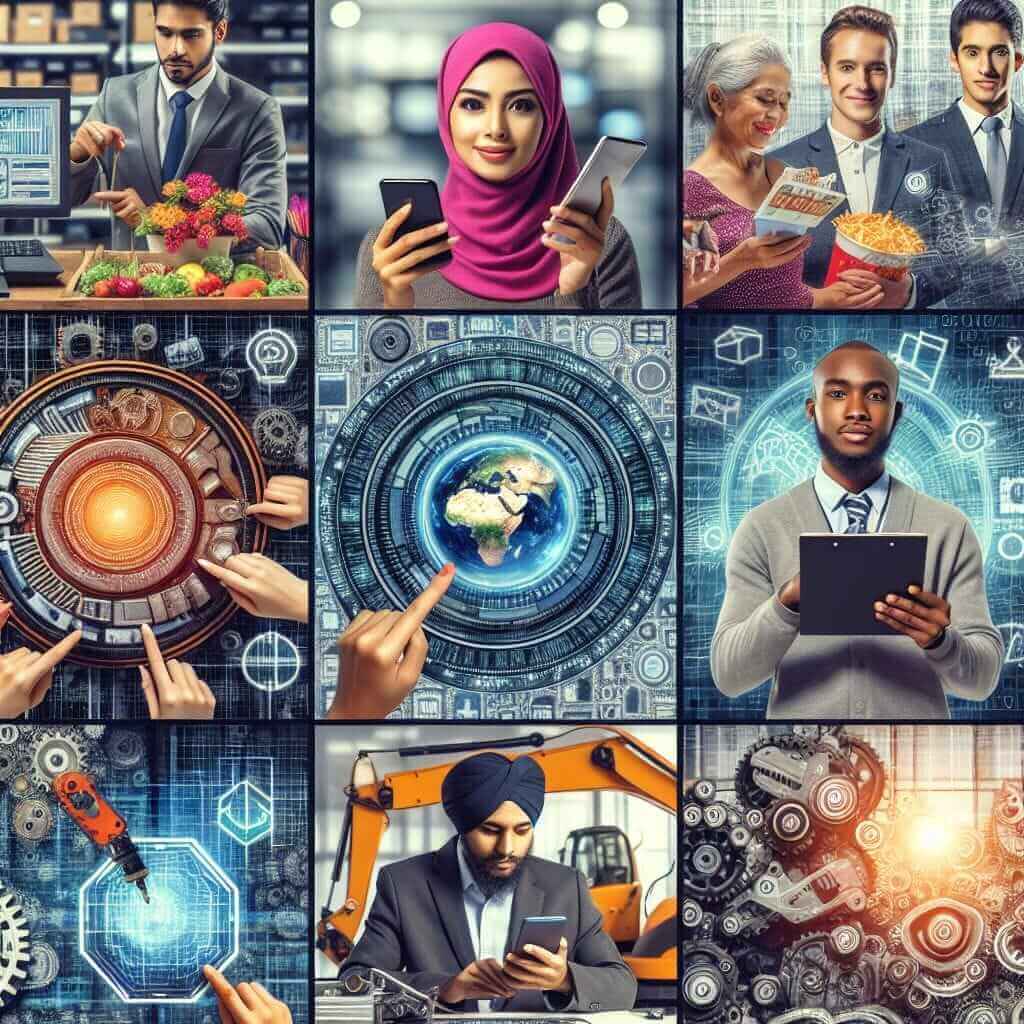The IELTS Reading test often includes passages on contemporary issues, notably the impact of digitalization on traditional businesses. This topic has appeared in past tests and remains relevant due to the rapid digital transformation in various industries. Understanding this subject not only prepares you for potential test questions but also enhances your grasp of modern economic dynamics.
In this article, we’ll provide you with a comprehensive, SEO-friendly IELTS Reading exercise on “What are the effects of digitalization on traditional businesses?” This practice will simulate real test conditions and include various question types.
Reading Passage
The Effects of Digitalization on Traditional Businesses
Digitalization, the integration of digital technologies into everyday activities, has significantly impacted traditional businesses. This transformation has affected various sectors, including retail, banking, and manufacturing.
1. Retail Industry
Digitalization has revolutionized the retail industry by introducing e-commerce platforms. Consumers can now purchase goods online from the comfort of their homes, making traditional brick-and-mortar stores less essential. Moreover, digital marketing tools enable businesses to reach a broader audience more effectively.
2. Banking Sector
In the banking sector, digitalization has led to the proliferation of online banking services. Customers can now manage their finances through mobile apps, reducing the need for physical branches. However, this shift has also raised concerns about cybersecurity and the digital divide.
3. Manufacturing Industry
Advanced technologies like automation and artificial intelligence (AI) have transformed manufacturing processes. These technologies enhance productivity and efficiency, leading to a decline in traditional manufacturing jobs. While digitalization offers numerous benefits, it also poses challenges such as the need for workforce retraining.
Moreover, digitalization has led to the emergence of new business models. For instance, the sharing economy, epitomized by companies like Uber and Airbnb, has disrupted traditional service providers. However, these technological advancements also require businesses to be agile and adaptable to survive in the digital age.

Reading Questions
Multiple Choice Questions
-
What is one effect of digitalization on the retail industry?
- A. Increased reliance on physical stores
- B. Introduction of e-commerce platforms
- C. Decline of online marketing tools
- D. Emergence of traditional business models
-
In the context of the banking sector, what has digitalization primarily facilitated?
- A. In-person banking services
- B. The use of mobile apps for financial management
- C. The rise of physical bank branches
- D. Increased need for traditional banking jobs
-
What is a consequence of digitalization in the manufacturing industry?
- A. Decrease in productivity
- B. Increase in traditional manufacturing jobs
- C. The introduction of automation and AI
- D. Decline in efficiency
Identifying Information (True/False/Not Given)
-
Digitalization has had no impact on the retail industry’s reach to customers. (True/False/Not Given)
-
Online banking services have made physical banking branches obsolete. (True/False/Not Given)
-
Workforce retraining is unnecessary due to digitalization in manufacturing. (True/False/Not Given)
Matching Information
Match the paragraph with its corresponding industry where digitalization has had an impact:
-
- Retail Industry
-
- Banking Sector
-
- Manufacturing Industry
Answer Key and Explanations
Multiple Choice Answers
- B (Introduction of e-commerce platforms)
- B (The use of mobile apps for financial management)
- C (The introduction of automation and AI)
True/False/Not Given Answers
4. False (Digitalization has allowed businesses to reach a broader audience)
5. Not Given (The passage does not explicitly state that physical branches are obsolete)
6. False (The passage states that workforce retraining is required due to digitalization)
Matching Information Answers
7. Paragraph 1
8. Paragraph 2
9. Paragraph 3
Common Mistakes and Tips
Common Mistakes
- Misinterpretation of Information: Often, students misinterpret information, leading to incorrect answers. Practice identifying key points in each paragraph.
- Time Management: Spending too much time on a single question can lead to insufficient time for others. Practice pacing yourself.
Vocabulary Focus
- Proliferation (n): /prəˌlɪfəˈreɪʃən/ – rapid increase in numbers
- Automation (n): /ˌɔːtəˈmeɪʃən/ – the use of technology to automate tasks
Grammar Focus
- Relative Clauses: Essential for adding information about a subject.
- Example: “Digitalization, which is the integration of digital technologies, has affected various sectors.”
Recommendations for Improving Reading Scores
- Practice Regularly: Regular practice with diverse topics enhances comprehension skills.
- Expand Vocabulary: A robust vocabulary aids in better understanding and interpreting reading passages.
- Skimming and Scanning: Develop these skills to quickly locate relevant information in the passage.
By incorporating these strategies and practicing regularly, you can significantly improve your performance in the IELTS Reading section, particularly on topics like the effects of digitalization on traditional businesses.